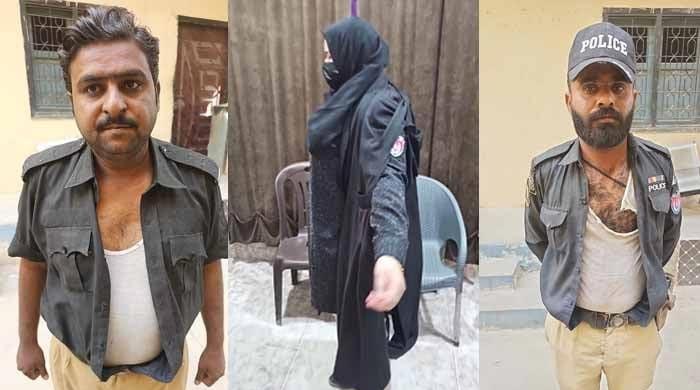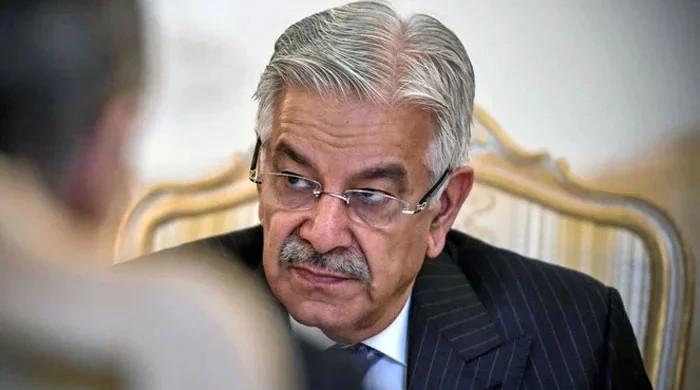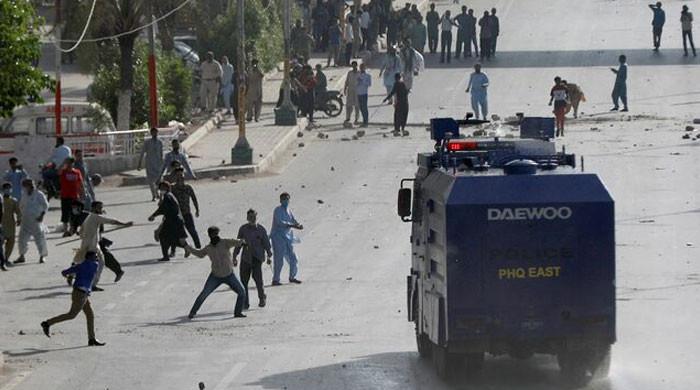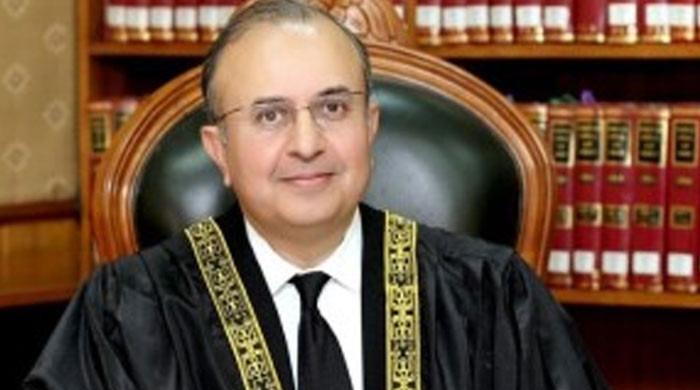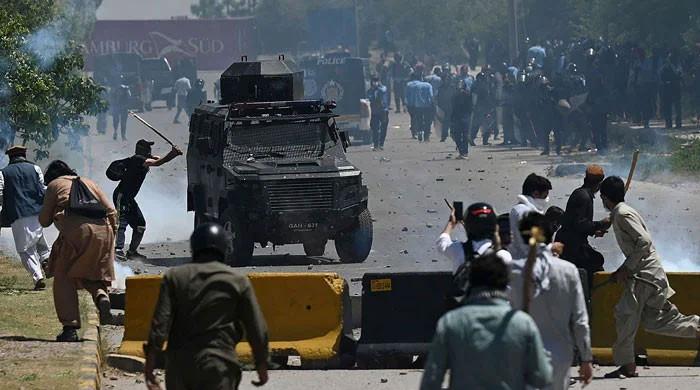Young journalist, in debt for Rs60,000, hangs himself
Deceased's child says there was no food to eat, family was starving due to poverty
November 27, 2021

- Faheem Mughal hanged himself on Thursday night after family went to sleep.
- On the day of the tragedy, Faheem didn't have enough money in his pocket to buy milk for his children.
- Faheem's wife says he had attempted to take his own life twice before. Both times, she had saved him.
KARACHI: Faheem Mughal, a journalist who was laid off a couple of months earlier, took his own life after unemployment, rising inflation and a Rs60,000 debt became too much for him to bear.
Mughal was found hanging by a piece of cloth from his ceiling Friday morning.
The deceased leaves behind a wife, five daughters and a son.
In a video shared and discussed widely on Facebook, a philanthropist visited Mughal's home after his death and spoke to his wife and daughter.
The deceased's eldest daughter disclosed that times were so hard on the family that they often used to go hungry for days.
"Often, we went without food for weeks," said his daughter. "He used to bring food home from JDC [a charity organisation] nearby."
On June 2, Mughal posted a status from his Facebook ID that read: "My job is no more, which is why I am very worried. Please pray for me."
After getting laid off, Mughal had turned to drive a rickshaw to make ends meet. Unable to pay off a bank loan of around Rs60,000, Mughal took his own life.
Mughal's funeral expenses have been paid by another journalist.
Mughal had attempted suicide at least twice before, reveals wife
Speaking to BBC Urdu, his wife Shahzadi Mughal revealed that her late husband had attempted to take his own life twice before he finally ended it.
Both times, she managed to save him from death.
"I go to every place with my CV, give interviews but the only response I get [from organisations] is: 'you know what the situation is,'" Mughal used to tell his wife.
Shahzadi said she often used to say to her husband that he will have to stay alive for his six children.
"I used to tell him [Faheem Mughal] that 'if you remain alive, you will be a source of support for our children. However, if you die, what will happen to them?'" she revealed.
Shahzadi said she was aware that her husband was suffering from immense mental stress. That prompted her to take him to a doctor who held counselling sessions to relieve him of the mental stress.
Shahzadi disclosed how she once urged Faheem to request people for help. However, he responded by telling her that he was a known figure in the media circle.
"If I cry about poverty in the name of my daughters, it will destroy my self-esteem," he told his wife.
Before committing suicide, Faheem spoke to his wife about the difficulties he was encountering in life due to poverty. His wife said he told her that it was no use being alive "when I am unable to do anything for my children".
"I advised Faheem against taking any drastic step. Faheem placed his hand over my head, swore that he would not harm himself," she revealed. "He then told us to go to sleep and that he would do the same.
"So we slept and when I got up in the middle of the night, I saw that Faheem had hanged himself," she disclosed.
She said her panicked family members took Faheem to the hospital where she was told by the medical staff that had they brought him in 20 minutes earlier, her husband would have been saved.
Threats from bank
Speaking to BBC Urdu, Faheem's close friend Umair Dabeer revealed that a few hours before he took his life, he did not have enough money in his pocket to buy milk for his child.
Dabeer revealed that two days before his demise, on Wednesday, Mughal brought home dinner for his family. It was later revealed that the food was bought from a non-governmental organisation (NGO).
His friend also disclosed that Mughal had spoken to him on various occasions about a Rs60,000 loan that he had taken from a bank. Mughal said that he had borrowed the money to get his children admitted to schools.
"Now, I don't think I can return the loan. The staff at the bank is issuing me threats now," Dabeer quoted Mughal as saying.
Mughal could not buy milk for his child on the day of the tragic incident as he was ill that day and could not drive his rickshaw due to the petrol crisis.
Dabeer said Mughal's rent on the rickshaw owner had accrued to Rs1,600 as he could not drive his rickshaw that day, adding that the media worker was considerably worried about how he would repay the amount.
He said Mughal used to drive a rickshaw during the day while at night, he used to work as a page-maker for various local newspapers. He was paid a small sum of money for that work.
BBC Urdu spoke to a senior colleague of Faheem's at work, who said that he often used to get feedback from his peers that Faheem often had issues relating to "discipline". However, he added that Faheem was quite good at his job.




